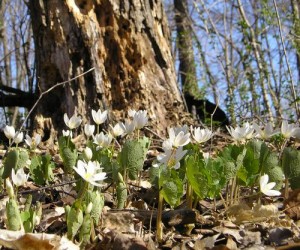Lughnasa Full Back To School Moon
Summer has three endings: Labor Day which marks the end of summer vacation for many school children; and, for many adults like myself, kicks us into serious mode as all those years of conditioning continue to affect our attitude; Mabon, or the Fall Equinox, which comes tomorrow, that point when day and night balance each other, neither claiming dominance, though the trend matters and at this equinox, the balance tips toward night as the darkness increases, pulling us toward the longest night, the Winter Solstice on December 22nd and Samhain, or Summer’s End according to the old Celtic calendar which divided the year in half, Beltane-Samhain or the growing season, and Samhain-Beltane or the fallow season. Samhain comes on October 31st and, like all Celtic holidays lasts a week.
The growing season has this triple farewell reflected too in the holidays of Lughnasa, the festival of first fruits, Mabon, the peak of the harvest and harvest home, and Samhain, the end of the harvest season and the end of the growing season. No matter how you notice or celebrate it these real changes in the agricultural year still happen, they still have critical importance for our human community, and they still deserve our attention. Why? Because our ages old relationship with agriculture is what separates us from the hunter-gatherers. Agriculture allows us to live in villages, towns and cities by producing surplus food on farms in much the same way that the honeybee produces surplus honey while still making enough for the colony to survive on throughout the winter.
Without those who farm, there would be no surplus food. With no surplus food we would have to revert to subsistence agriculture, growing what we needed every year or hunting and gathering. This would prove daunting since most of us have forgotten or never been taught how to grow food, how to hunt, how to identify edible plants.
This is the great hidden reality for many, if not most, urban dwellers, who make up, since 2008, over half of the world’s population, a projected 5 billion people by 2030. Without a healthy eco-system, one that can support intense tillage, that is, sustainable tillage, the world’s urban dwellers will be bereft of something they cannot do without: food. Add to that the pressure on the world’s fresh water supply and two fundamental sustainers: food and water are at peril.
Granted following the holidays of the Great Wheel will not work magic–sorry to all my Wiccan friends–but it would remind us all, 8 times a year, of the source of our sustenance. That would help. Naming our days after these holidays (I do it in the upper left of each post) keeps that reminder fresh. Our sustainers, mother earth and father sun, do not require us, do not need anything from us, yet they will support us if we live within their limits. These holidays began when our ancestors realized the need to remind themselves of the delicate, fragile harmony required for human life to flourish.
Over the course of the years and centuries and millennia since, hubris has lead us further and further away from the old religion; we have replaced it with idols, fetishes, really. We will, at some point, pay the price for our blasphemy as we upset that harmony, creating an environment that will no longer sustain human life. Only if we step back from our profligacy can we ensure our survival.
Knowing the rhythms of the natural world, of the agriculture that feeds us, of the systems that keep water fresh and available, is our only chance to avoid apocalypse. Will we do it? I don’t know.

